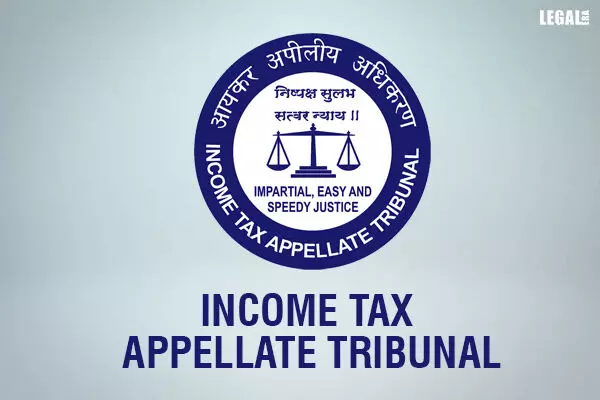- Home
- News
- Articles+
- Aerospace
- Artificial Intelligence
- Agriculture
- Alternate Dispute Resolution
- Arbitration & Mediation
- Banking and Finance
- Bankruptcy
- Book Review
- Bribery & Corruption
- Commercial Litigation
- Competition Law
- Conference Reports
- Consumer Products
- Contract
- Corporate Governance
- Corporate Law
- Covid-19
- Cryptocurrency
- Cybersecurity
- Data Protection
- Defence
- Digital Economy
- E-commerce
- Employment Law
- Energy and Natural Resources
- Entertainment and Sports Law
- Environmental Law
- Environmental, Social, and Governance
- Foreign Direct Investment
- Food and Beverage
- Gaming
- Health Care
- IBC Diaries
- In Focus
- Inclusion & Diversity
- Insurance Law
- Intellectual Property
- International Law
- IP & Tech Era
- Know the Law
- Labour Laws
- Law & Policy and Regulation
- Litigation
- Litigation Funding
- Manufacturing
- Mergers & Acquisitions
- NFTs
- Privacy
- Private Equity
- Project Finance
- Real Estate
- Risk and Compliance
- Student Corner
- Take On Board
- Tax
- Technology Media and Telecom
- Tributes
- Viewpoint
- Zoom In
- Law Firms
- In-House
- Rankings
- E-Magazine
- Legal Era TV
- Events
- Middle East
- Africa
- News
- Articles
- Aerospace
- Artificial Intelligence
- Agriculture
- Alternate Dispute Resolution
- Arbitration & Mediation
- Banking and Finance
- Bankruptcy
- Book Review
- Bribery & Corruption
- Commercial Litigation
- Competition Law
- Conference Reports
- Consumer Products
- Contract
- Corporate Governance
- Corporate Law
- Covid-19
- Cryptocurrency
- Cybersecurity
- Data Protection
- Defence
- Digital Economy
- E-commerce
- Employment Law
- Energy and Natural Resources
- Entertainment and Sports Law
- Environmental Law
- Environmental, Social, and Governance
- Foreign Direct Investment
- Food and Beverage
- Gaming
- Health Care
- IBC Diaries
- In Focus
- Inclusion & Diversity
- Insurance Law
- Intellectual Property
- International Law
- IP & Tech Era
- Know the Law
- Labour Laws
- Law & Policy and Regulation
- Litigation
- Litigation Funding
- Manufacturing
- Mergers & Acquisitions
- NFTs
- Privacy
- Private Equity
- Project Finance
- Real Estate
- Risk and Compliance
- Student Corner
- Take On Board
- Tax
- Technology Media and Telecom
- Tributes
- Viewpoint
- Zoom In
- Law Firms
- In-House
- Rankings
- E-Magazine
- Legal Era TV
- Events
- Middle East
- Africa
Dispute Over Warehousing Deduction Referred Back To Assessment Officer By ITAT

Dispute Over Warehousing Deduction Referred Back To Assessment Officer By ITAT
The Income Tax Appellate Tribunal (ITAT) bench in Indore, comprising Judicial Member Vijay Pal Rao and Accountant Member B.M. Biyani, has directed a case involving a warehousing corporation back to the Assessment Officer (AO) for further assessment. This decision comes after a dispute regarding a deduction claimed by the corporation under Section 35AD of the Income Tax Act.
The assessee, a statutory corporation established under the Warehousing Corporations Act, 1962, is primarily engaged in constructing and maintaining warehouses for storing goods, particularly agricultural produce. The corporation claimed a deduction under Section 35AD for investments made in constructing these warehouses.
However, the AO denied the deduction because the warehouses allegedly stored non-agricultural produce as well. The AO estimated the income earned from the "specified business" of warehousing agricultural produce and concluded that it was not profitable, thereby disallowing the deduction.
The assessee appealed to the Commissioner of Income Tax (Appeals) (CIT(A)), who reversed the AO's decision after considering the corporation's income and investment details. The CIT(A) allowed the deduction based on the assessee's claim that 97.47 per cent of storage was for agricultural produce, with only 2.53 per cent used for non-agricultural goods.
The ITAT bench, upon reviewing the case, observed that the AO's order lacked any calculations or justification for estimating income from the "specified business" of warehousing agricultural produce. While the CIT(A) allowed the deduction based on the income breakdown provided by the assessee, the ITAT noted that these crucial details weren't presented to the AO during the initial assessment. The AO had specifically mentioned that the assessee had not provided information about profits generated from the warehouses for which the deduction was claimed.
Consequently, the ITAT allowed the revenue department's appeal due to the absence of income and expenditure bifurcation details during the initial assessment. The ITAT remitted the case back to the AO for "proper verification and consideration" of the bifurcated income details from both specified (agricultural produce) and non-specified business activities. The AO will then adjudicate the issue based on this new information.



